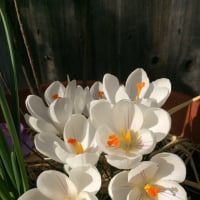This Forum will close on Wednesday 27 March, 2024. Please refer to the announcement on the Discussions page for further detail.
Plants toxic to bees
 WillowBark
Posts: 243
WillowBark
Posts: 243
I don't why it didn't occur to me before, but I've just found out that some plants (some of them quite popular) are toxic to bees. The Countryfile website has an article called "British bee guide: how to identify, where to spot, and how to attract bees to your garden" that lists some plants that are really good for bees, and some that really, really aren't.
Suffice to say, I will now definitely be binning the free azalea gift that came with my last plant order (I didn't want it anyway, so was debating whether to bother keeping it, and this is the death knell for it as far as I am concerned).
Thought I ought to post about it in case there are other novices like me who want to encourage bees to their garden but for whom this would never have crossed their mind. Flowers and bees seem such a positive combination, but clearly this is not always the case!
Suffice to say, I will now definitely be binning the free azalea gift that came with my last plant order (I didn't want it anyway, so was debating whether to bother keeping it, and this is the death knell for it as far as I am concerned).
Thought I ought to post about it in case there are other novices like me who want to encourage bees to their garden but for whom this would never have crossed their mind. Flowers and bees seem such a positive combination, but clearly this is not always the case!
0
Posts
Don't bin your azalea.
I keep honeybees ... currently have 8 hives. As @pansyface says Rhododendron ponticum is known for having nectar which can be a problem for bees. BUT they would have to be browsing more or less exclusively on it for there to be a real problem.
There are areas in the UK where it is a menace and grows profusely, and it is being actively eradicated.
A single azalea in a garden situation will really be fine. I grow them in my garden and the bees have been thriving here for the last 15 years.
Bee x
A single bee creates just one twelfth of a teaspoon of honey in her lifetime
That's interesting, I was told a few years ago when I helped remove some rhodies for the local wildlife trust that rododendron honey is toxic but I assumed that was to humans - never imagined it would be to the bees!